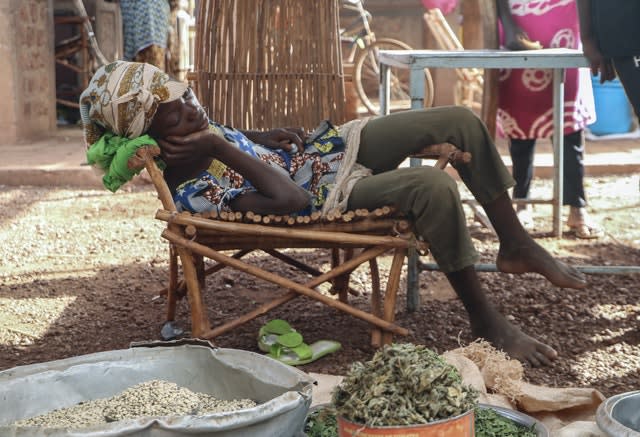Food insecurity increases in Burkina Faso amid Islamic extremist activity
Food insecurity is one of the byproducts of attacks by Islamic extremists in Burkina Faso.
Extremists chased Adama Drabo and his family from their land in western Burkina Faso, forcing them to abandon a year’s worth of crops.
Now that food is rotting in storage in the village, too dangerous for him to retrieve, even as the family is forced to survive on meagre government rations.
Mr Drabo already has lost his 20-year-old son, who was killed by a roadside bomb.
“Security is getting worse, and this year we won’t be able to cultivate and it will be a big problem,” he said.
His future looks bleak if he and his family cannot return to their land.

Violence linked to jihadists has spread from Burkina Faso’s north to its western breadbasket in the Boucle du Mouhoun region, pushing thousands like Mr Drabo to hunger and threatening to cut off food for millions more in the country on the edge of the Sahara Desert.
The fertile land produces large amounts of rice and maize, according to the government.
Humanitarian groups are concerned that the coronavirus pandemic could exacerbate an already dire situation in Burkina Faso, one of the most impoverished countries in the world.
“If production goes down in this area and if movement restrictions due to the coronavirus drive up food prices in the markets, it could push numbers of severely vulnerable people to double or triple,” said Julia Wanjiru, communications coordinator for the Sahel and West Africa Club, an intergovernmental economic group.
Food insecurity already affects two million people in Burkina Faso, according to the latest report from its government and aid groups.
Coronavirus is also spreading, with 884 reported cases and 53 deaths as of Monday.

While the government has lifted restrictions on movement between cities, its borders with Mali, Niger and Ivory Coast remain closed, making the importation of food more expensive.
The small town of Tougan is sheltering nearly 6,000 displaced people with new arrivals daily, according to Lassina Sougue, who directs the government’s humanitarian response in Sourou province.
The situation is similar in some other small towns.
He said the communities are resilient and showing solidarity.
But on a recent trip to Boucle Du Mouhoun, at least a dozen people coming from three different provinces all said they were worried about food and access to their land.
Anticipating a food crisis, the United States has doubled this year’s funding to World Food Programme for Burkina Faso, to 21 million US dollars and is set to announce an additional seven million US dollars in the coming weeks, according to an official with close knowledge of the situation.

 Yahoo News
Yahoo News 
